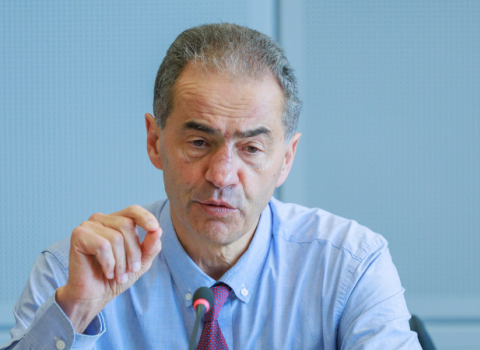Waldemar Kütt given job 10 months after taking interim role following surprise resignation of his predecessor

Waldemar Kütt. Photo: Science|Business.
The European Commission named Waldemar Kütt as permanent director of the European Research Council’s administrative division, 10 months after he took the interim role at the agency following the unexpected departure of his predecessor, Pablo Amor.
Kütt, acting head of the ERC Executive Agency since August 2019, is appointed for an initial four years. The position is a seconded role for Kütt, who has also been named as principal adviser to the commission’s research directorate.
The German came into the ERC job after Amor resigned in protest over a range of management changes he alleged could limit the agency’s flexibility.
Kütt joined the EU research directorate in 1997, and served under two research commissioners, Janez Potocnik and Máire Geoghegan-Quinn, from 2008-2015. He has also held several positions in the directorate’s bioeconomy unit.
His promotion to permanent ERC executive chief marks a moment of continuity for the funder, which was also been set back by the exit of the president of the scientific council, Mauro Ferrari, who left in loud protest last month over the commission’s handling of the COVID-19 crisis. In an open declaration, six of Europe’s top research chiefs are calling for a “transparent procedure” in selecting Ferrari’s replacement.
The ERC consists of a governing scientific council of 22 members, which sets the scientific direction of the ERC, while an executive agency of some 400 staff controlled by the commission runs day-to-day grant administration. Both are based in Brussels.
Kütt’s team organises calls for proposals and coordinates administrative support for funded research projects. It helps organise and moderate panel meetings of independent reviewers and follow up with principal investigators on the progress of their research.





 A unique international forum for public research organisations and companies to connect their external engagement with strategic interests around their R&D system.
A unique international forum for public research organisations and companies to connect their external engagement with strategic interests around their R&D system.